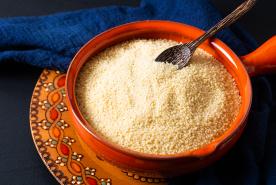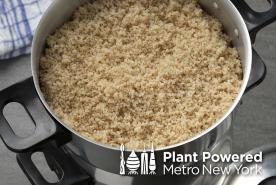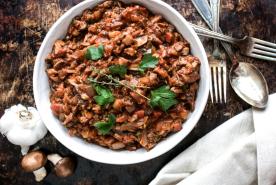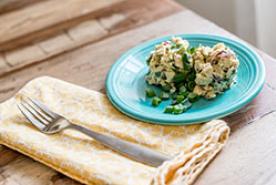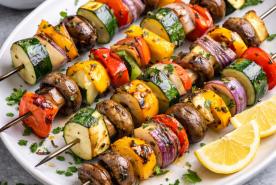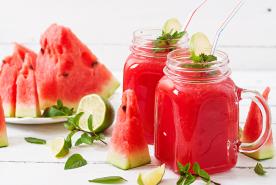Yogurt is a creamy dairy product made by fermenting milk. It can be plain, mixed with fruit, in smoothies, or dips. Types include Greek and plant-based.
Yogurt is a popular dairy product made by bacterial fermentation of milk. Its rich, creamy texture makes it a favorite food for many. It can be eaten in different ways: plain, mixed with fruit and granola, as a smoothie, or dip. There are different types of yogurt, including regular, Greek, kefir, and plant-based yogurts made from plant proteins instead of milk, such as soy and coconut.
Why is yogurt a superfood?
Yogurt contains many nutrients, including:
- Vitamin B12, which is important for proper nerve function, heart health, and preventing anemia.
- Riboflavin, which helps to produce energy in the body.
- Phosphorus and calcium for helping to build strong teeth and bones.
- Protein, within a general range of 6-15 g protein per 6 oz serving to promote healthy muscle and fight infections.
- Probiotics, which may help strengthen the digestive and immune systems.
With Kidney Disease
- CKD/Transplant
- Yogurt contains protein, phosphorus, and potassium. These may need to be limited.
- After transplant, it’s important that you get enough calcium to keep your bones healthy. Avoid unpasteurized yogurt.
- Hemodialysis (3 times/week)
- Yogurt contains phosphorus and potassium, which may need to be limited.
- Daily Home and Nocturnal Hemodialysis/Peritoneal Dialysis
- Daily home and nocturnal hemodialysis remove more phosphorus and fluid from the body, so yogurt may not need to be limited. Patients on peritoneal dialysis still usually need to limit phosphorus.
- Talk to your kidney dietitian about how you can fit yogurt into your kidney diet plan.
- Kidney Stones
- Eating calcium with each meal can be helpful in preventing calcium oxalate stones. Talk with your doctor and kidney dietitian about the type of kidney stones you have and how you can include yogurt in your diet.
| Plain (6oz) | Greek (6oz) | Kefir 8oz |
|---|---|---|---|
Protein(g) | 6 | 15 | 9 |
Phosphorus(mg) | 162 | 230 | 244 |
Calcium(mg) | 206 | 170 | 303 |
Potassium(mg) | 264 | 240 | 388 |
fdc.nal.usda.gov
Strawberry & Chocolate Frozen Yogurt Bark
Source: Fresenius Kidney Care
Ingredients
- 3 cups whole-milk plain Greek yogurt
- ¼ cup pure maple syrup or honey
- 1 teaspoon vanilla extract
- 1½ cups sliced strawberries
- ¼ cup mini chocolate chips
Directions
- Line a rimmed baking sheet with parchment paper.
- Stir yogurt, maple syrup (or honey) and vanilla in a medium bowl. Spread on the prepared baking sheet into a 10-by-15-inch rectangle. Scatter the strawberries on top and sprinkle with chocolate chips.
- Freeze until very firm, at least 3 hours. To serve, cut or break into 32 pieces
Nutrition Per Serving
· Calories: 39 cal
· Sodium: 9 mg
· Protein: 2.3 g
· Phosphorus: 36 mg
· Potassium: 56 mg
This content is provided for informational use only and is not intended as medical advice or as a substitute for the medical advice of a healthcare professional.











